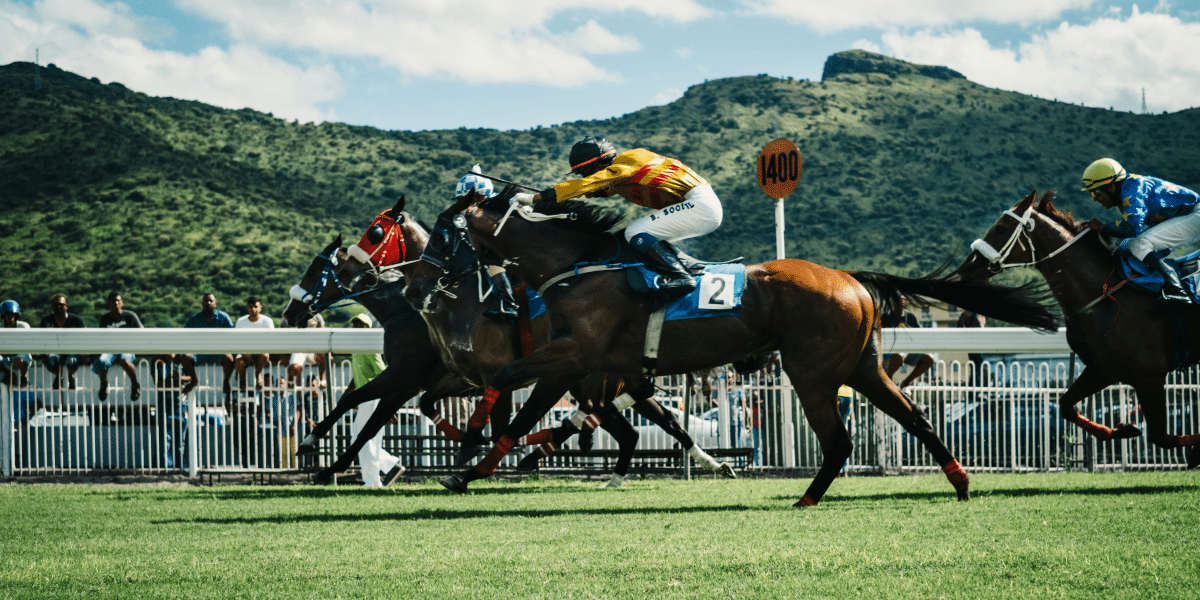Horse racing is more than a sport in Kentucky; it is a storied tradition rooted in centuries of passion, skill, and community. Known as the “Horse Capital of the World,” Kentucky’s horse racing legacy is built on a foundation of premier events, celebrated breeding grounds, and a cultural pride that has helped define the state’s identity and economy.
A Rich History of Racing
Early Beginnings
Kentucky’s horse racing tradition dates back to the late 1700s when settlers brought their love for equestrian sports to the Bluegrass State. The first recorded race in 1789 in Lexington marked the beginning of a thriving racing culture. The state’s fertile soil and favorable climate made it ideal for breeding and training horses, laying the groundwork for its prominent role in horse racing history.
Development of Tracks
Over time, Kentucky became a premier racing destination by developing notable tracks. The Kentucky Association Track in Lexington opened in 1828 helped solidify the state’s reputation. However, Churchill Downs, inaugurated in 1875, truly put Kentucky on the global stage. This historic venue hosted the first-ever Kentucky Derby, now a legendary American sports tradition.
The Allure of Major Racing Events
The Kentucky Derby
The Kentucky Derby, often referred to as “The Run for the Roses,” is Kentucky’s crown jewel of horse racing. Held on the first Saturday in May, this 1.25-mile race at Churchill Downs attracts top horses, trainers, and spectators from across the globe. The pageantry, from elaborate hats to singing “My Old Kentucky Home,” creates an unforgettable spectacle that transcends the sport itself.
The Kentucky Oaks
The day before the Derby, Churchill Downs hosts the Kentucky Oaks, a race for three-year-old fillies. This Grade I stakes race spans 1.125 miles and highlights the strength and talent of female horses. With large crowds and high stakes, the Oaks is vital to Kentucky’s racing culture.
Keeneland’s Contribution
Keeneland Race Course, established in 1936, adds to the state’s prestige with its spring and fall meets. Known for its scenic beauty and commitment to tradition, Keeneland also serves as a major Thoroughbred auction house, further solidifying Kentucky’s role as a global leader in horse racing.
Breeding and Training: The Backbone of Success
World-Class Breeding Farms
Kentucky’s reputation is bolstered by its renowned horse breeding farms, such as Claiborne Farm, Lane’s End, and Ashford Stud. The nutrient-rich bluegrass pastures provide the perfect environment for raising champions. These farms are synonymous with excellence and have produced numerous world-class Thoroughbreds.
Comprehensive Training Facilities
In addition to breeding, Kentucky excels in preparing horses for the racetrack. Training centers like the Thoroughbred Center in Lexington offer state-of-the-art amenities, including training tracks and veterinary services. This commitment to superior training ensures that Kentucky’s horses are among the best in the world.
Economic Impact of Horse Racing
Job Creation and Local Revenue
Horse racing is a significant driver of Kentucky’s economy, providing thousands of jobs and supporting diverse sectors. Trainers, jockeys, veterinarians, farm workers, and support staff all play critical roles. Moreover, the industry’s success flourishes in ancillary jobs in tourism, hospitality, and retail.
Tourism and Community Boosts
Events such as the Kentucky Derby and Keeneland’s meets attract millions of visitors annually. Tourists flock to Kentucky, spending on accommodations, dining, and attractions, generating substantial revenue. The economic impact extends far beyond race day, benefiting local businesses and communities across the state.
A Cultural Touchstone
Deep-Rooted Traditions
Horse racing is embedded in Kentucky’s cultural fabric. Traditions such as Derby Day celebrations, elaborate hats, and community gatherings reflect the deep connection between residents and the sport. The singing of “My Old Kentucky Home” before the Derby exemplifies the pride and nostalgia that define this tradition.
Community Involvement
Kentucky’s horse racing culture thrives on community involvement. Local businesses, schools, and organizations rally around racing events, ensuring their continued success. This tight-knit support system underscores the state’s collective commitment to preserving its racing legacy.
Facing Challenges and Looking Forward
Addressing Modern Issues
Despite its storied past, Kentucky’s horse racing industry faces challenges, including animal welfare concerns, doping scandals, and competition from other entertainment sectors. Upholding ethical standards and implementing stricter regulations are crucial for the sport’s integrity and long-term appeal.
Innovating for the Future
Thanks to ongoing innovations, the future of horse racing in Kentucky is bright. Efforts to enhance safety, promote ethical breeding practices, and incorporate technology, such as advanced training methods and digital betting platforms, aim to attract a new generation of fans while preserving the sport’s tradition.
Published by: Nelly Chavez








